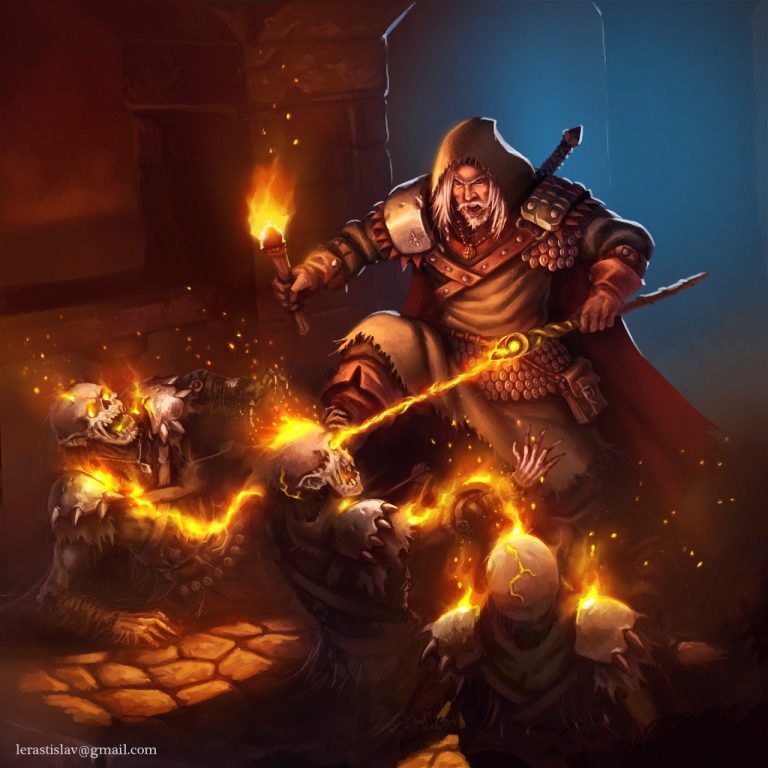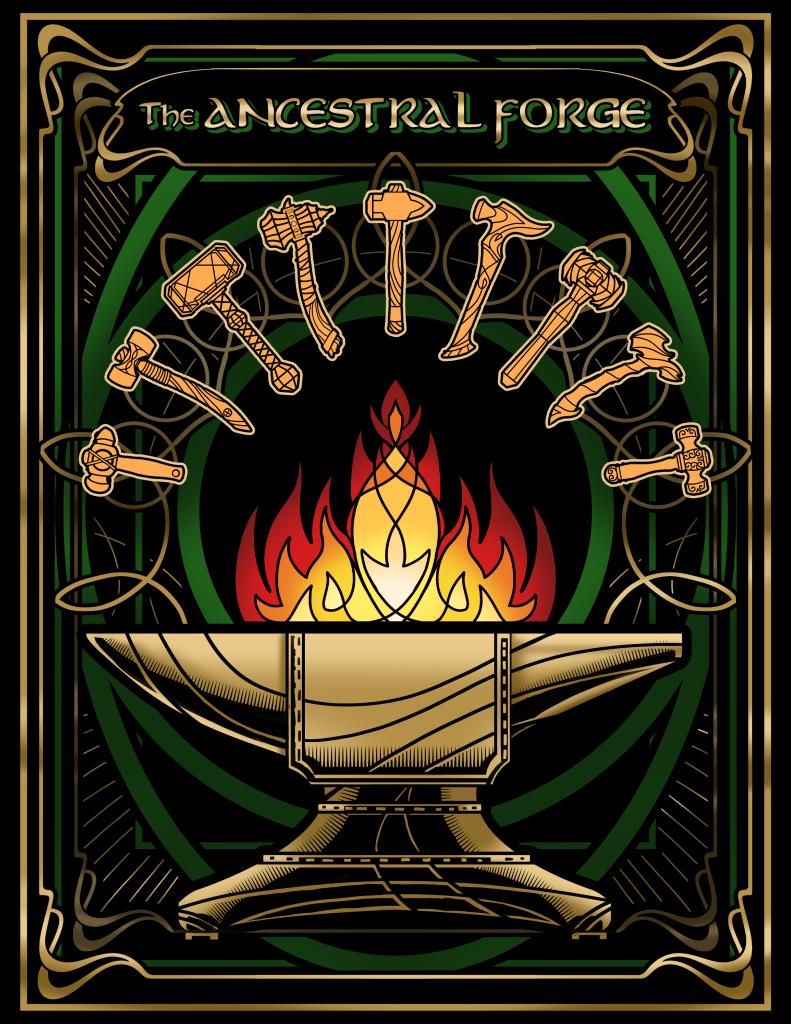D&D 5e: Knowledge Domain Cleric Guide

D&D 5e: Knowledge Domain Cleric Guide
Role in the Party
Roleplay-heavy and the DM’s best friend, the Knowledge Domain Cleric will help you know what you need to know to get all the information you could ever ask for and keep the adventure moving. It has roleplay utility, and there’s never been a Cleric that couldn’t work for the party– but is this the Cleric for you?
Epic
Good
[Meh]
Bad
The Knowledge Domain Cleric subclass is found in the Player’s Handbook. Click here to pick up your own copy of the Player’s Handbook!
Knowledge Domain Features
Blessings of Knowledge: Starting at first level, you add two languages to your character right off the bat, and become proficient in your choice of two between Arcana, History, Nature, or Religion. Your proficiency bonus is doubled for any ability check using either of those skills. Nature and Arcana are the only two on that list that aren’t already options given to you by your class choice, but maximizes your favorites.
Channel Divinity: Knowledge of the Ages: Starting at second level, you can use channel divinity to give yourself proficiency in one skill or tool as an action, for ten minutes. Why would you ever do that? The usage here is super limited, and you can’t be blamed for forgetting it.
Channel Divinity: Read Thoughts: In the cooler channel divinity, at sixth level, you can read a creature’s thoughts, then command them. The creature must be within 60ft of you and must fail a wisdom saving throw for you to read its thoughts (whatever it’s actively thinking about) for one minute. You can also end the effect early and cast Suggestion without using a spell slot. But that’s assuming it failed the wisdom save for you to read its mind. This has enough edge cases to never really feel like a sure thing, and might not help you in the long run.
Potent Spellcasting: Starting at 8th level, add wisdom modifier to damage dealt with any cleric cantrip. A little more damage never hurts.
Visions of the Past: Starting at 17th level, you can meditate (with concentration as if casting a concentration spell) on an object to learn stuff about it, once per short or long rest. The visions are shadowy and unclear. You can learn details about an object, and learn how it changed hands or how it was acquired, or you can meditate on a place and see information about it; mostly significant events from the past or more mundane things important to your situation.
Basically, this is the DM’s ‘Let me tell you about stuff’ option, but you can totally harass the DM by meditating on single gold pieces if you really want to.
The thing is: You already had the spell Legend Lore. Why do you need this? Just, more castings of the same thing?
Strengths
Clerics do cleric things. As a Knowledge Domain Cleric, you can hinder enemies on the battlefield, and learn things about quest items; or even cast speak with the dead once you get to 5th level, for your Ravenloft games. This is great if you know your DM has a great story to tell and you want to help them out, and you’ll never be useless on the field as a Cleric of any kind.
Weaknesses
Alright, the big question is: Is it fun for you to be the DM’s conduit for the players? Because let’s face it: under most circumstances, your Channel Divinity options suck, and so do most of your upgrades. You’re still super useful! It’s just that you’ll often feel more like a tank with spells or the DM’s assistant than anything. But hey, your DM will like you. Unless you do that coin thing from earlier. Then they might hate you.
Best Race Options
–Aasimar (Radiant Soul): Once per day having wings for 1 minute and dealing radiant damage. Do you need anything else? Oh yeah, and celestial resistance gives you resistance to necrotic and radiant damage, dark vision, healing hands, and the Light cantrip. It’s the most cleric-y of classes any day.
–Eladrin: There’s never a bad time to be an Eladrin. Darkvision, fey ancestry, fey step giving you different kinds of teleports, keen senses, and in addition to a typical Trance for fey creatures, you can change your season (changing the effects of your teleport), and gain two proficiencies you don’t have, each with a weapon or tool of your choice from the PHB, which are retained until you finish a long rest. Not a bad choice for a Knowledge Domain Cleric.
–Variant Human: Get the War Caster feat immediately, because casters should get War Caster, especially if you have a lot of concentration spells.
Choosing the Right Skills
From the Cleric start at level 1, you get a choice of two between History, Insight, Medicine, Persuasion, and Religion. Pick up Persuasion and Insight.
When you choose the Knowledge domain, you’ll be able to pick an additional two between Arcana, History, Nature, or Religion. Pick Religion and History, or Religion and Arcana, unless the flavor/background of your character says otherwise. As the party Cleric, it’s up to you and the Paladin to know things about religion.
Adjust as needed for whatever your background is.

Fitting Feats
War caster is a must. You’re a cleric, you’ll be fighting, and you need to have the ability to cast with your hands full. If your DM doesn’t care about that, it still gives you advantage on Con saving throws for maintaining concentration, and lets you cast spells on enemies that have provoked an opportunity attack from you.
Heavily Armored is good IF you don’t mind that you won’t be your rogue’s backup. You’ll be sitting out with the Paladin and any of the other less-than-sneaky types. If you need to be there to back up your rogue, pick up Medium Armor Master instead. Make this choice before you start so you can figure out if your Dex will be high enough to get the bonus to your medium armor wearing, even if you don’t immediately take this feat.
Dungeon Delver will synergize well thematically; giving you advantage on perception and investigation checks for looking for secret doors, saving throws made to avoid or resist traps, resistance to damage dealt by traps, and no penalty on passive perception score just for traveling quickly (not that DMs ever pay attention to that).
(Image posted by u/Winter_Wisp on Reddit)
Optimal Backgrounds
–Acolyte: Proficiency in Insight and religion, two new languages, standard cleric-y items, and 15 GP; with the feature that you’re likely to receive free healing and care at religious locations that pertain to you, aside from the required material components for spells (that cost is still on you). You (by yourself) will also be modestly supported by others in your religion.
–Charlatan: Weird choice, perhaps, but consider: Nothing is saying that a cleric can’t spy on cults or religions at war with their deity. Or maybe your cleric views themself as a fraud to the cloth? Either way, you get proficiency in deception and sleight of hand, disguise and forgery kits, useful items, 15 gold, and the False Identity feature, letting you assume a persona, or forge important documents as long as you’ve seen things like them. Great for intrigue and flavor. Clerics aren’t known to be sneaky, and a god of knowledge might reward cleverly ingratiating oneself with the enemy to tear them down later. Plus, it’ll be funny when the Rogue sees you pull out a fake persona flawlessly. It’s a weird but interesting concept for a Knowledge Domain Cleric.
–Sage: Double-down on your knowledge. Proficiencies in Arcana and History, gain 2 languages, get typical equipment and 10gp, then have the Researcher Feature, which is your way of saying ‘Hey DM, where do we go to get the plot moving?’ as you determine where you can go to learn what you need to know.
Multiclassing Options
-Druid: You have the same casting ability as the druid, making this an easy place to multiclass. If you’re going to take a second level into a druidic circle, Circle of the Shepherd is a good compliment, letting you speak with animals more than any racial option, as well as learning Sylvan if you don’t already have it. Alternatively, take Circle of Stars so that you have access to the Chalice Starry form, letting your heals do extra healing. Plus, it’ll just be a really cool flavor.
–Monk: Hit things better, faster. Way of the Astral Self monk lets you use your wisdom modifier in place of your Strength modifier for Strength checks and saving throws when your spectral arms are present, and if you get to level 6 you’ll get all kinds of good benefits from Visage of the Astral Self; like essentially casting message -or broadcasting your voice out to 600 feet telepathically-, advantage on checks, and seeing normally in magical and nonmagical darkness to 120 feet.
–Fighter: Another variant of ‘hit things better’, the Fighter is versatile enough to work for anyone. In this case, if you multiclass enough to specialize, go for Rune Knight. The runes are invaluable, and Giant’s Might is pretty cool.
Would I recommend playing a Knowledge Domain Cleric?
This is one where you want to know your DM, and maybe your party. If your DM likes puzzles and deep lore, Knowledge Domain will have its uses.
But let’s be real: If your DM doesn’t like deep lore, and you don’t have some interesting flavor for your Knowledge Domain Cleric, give this one a pass and try out something like Order Domain instead.








